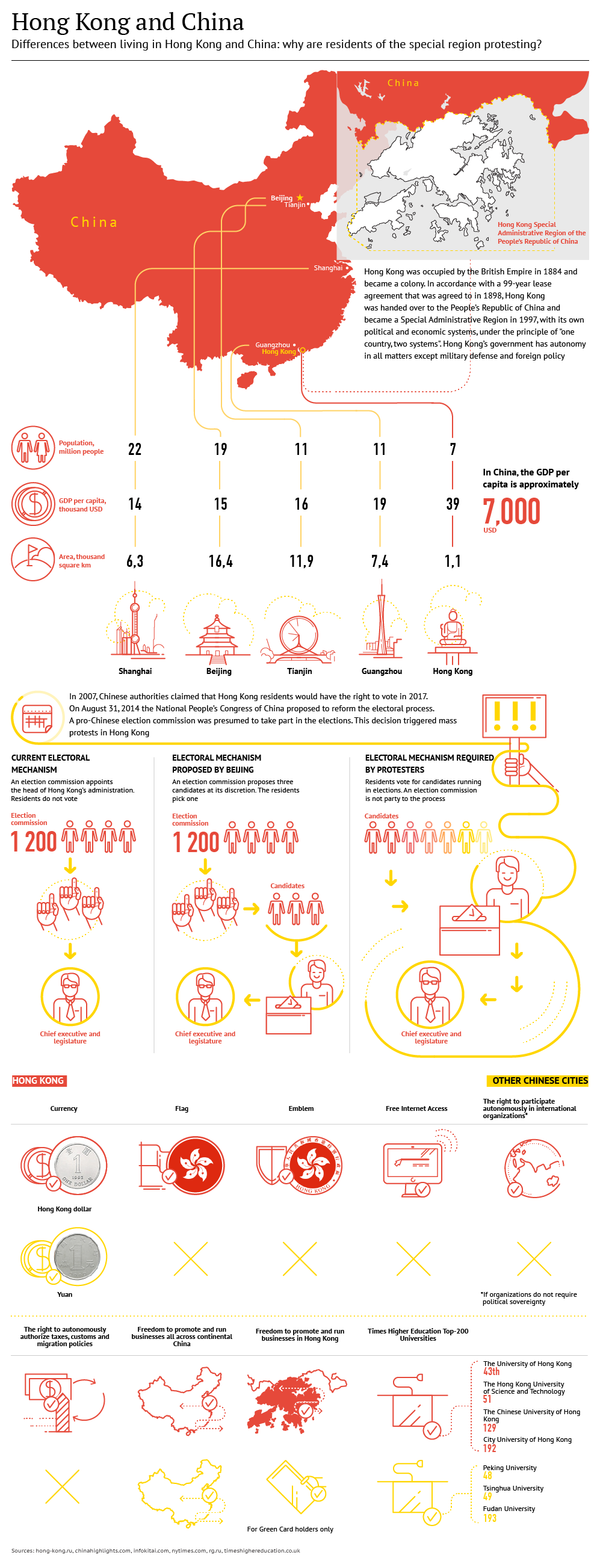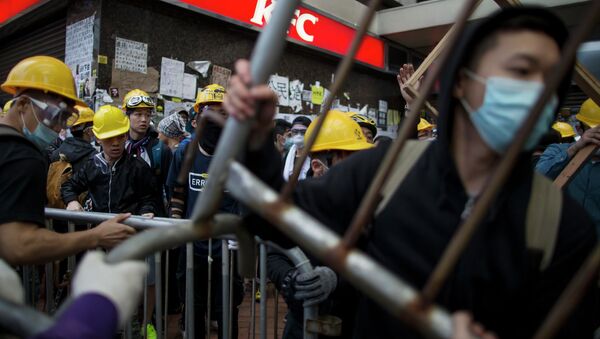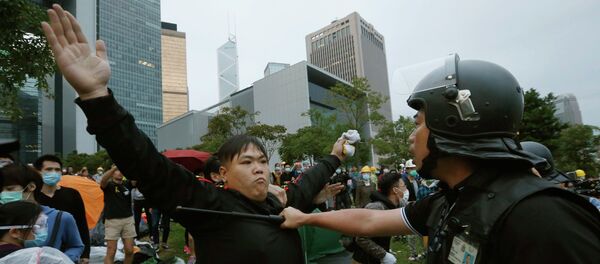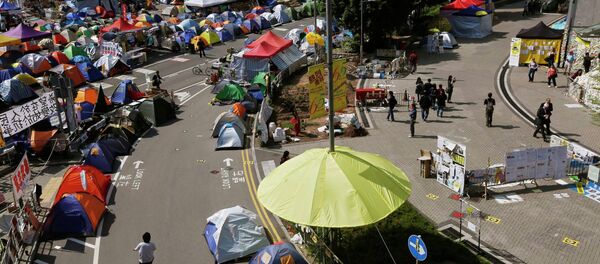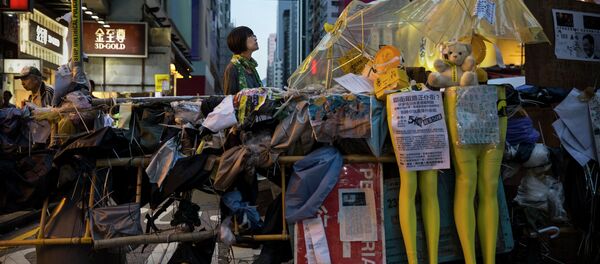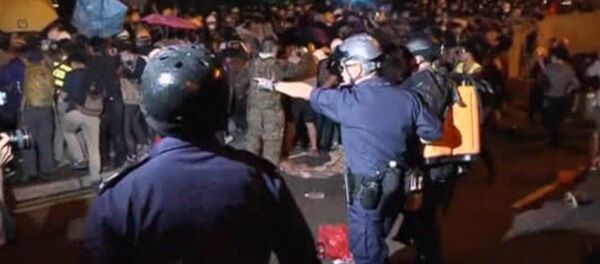"The British MPs were due to arrive in Hong Kong later this month to meet with pro-democracy activists as well as the Hong Kong Government. This was part of its investigation into UK's relations with Hong Kong 30 years after the Joint Declaration was signed that handed the colony back to China," the Independent reported.
"Last week they told us it would be perceived we would be siding with the protesters who occupy central and other illegal activities. Then on Friday afternoon [November 28] the deputy ambassador came and told me we would not be allowed into Hong Kong. I told him they were making a mistake," said Mr. Ottaway, as quoted by the Independent.
Earlier this month another British diplomat in China was denied a visa to the mainland under the pretext of his "inacceptable" stance towards Hong Kong's anti-government protests.
On Sunday, November 30, thousands of Hong Kong rioters had again clashed with police, rejecting to withdraw the movement.
During the clashes "the violent radicals deliberately threw objects including water bottles, helmets and pepper powder at the police officers," Xinhua narrates, adding that the rioters also used "strong flashlights" against the police "and attacked them [police officers] with fire extinguisher spray." As a result of Sunday's standoff, eleven police officers have been injured and 40 protesters arrested.
The New York Times notes that despite the fierce criticism of China from the British Foreign Affairs Committee, the UK's government is highly interested in preserving mutually beneficial relations with Beijing, seeking "to win more British business there, and more Chinese investment in Britain." In order to "further cement the relationship" British Prince William is planning to visit China's mainland next spring, the media outlet remarked.
